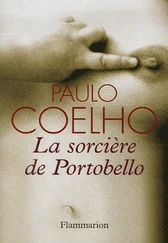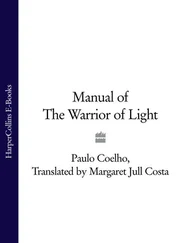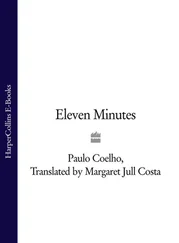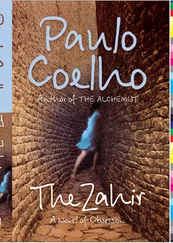Paulo Coelho - Adultery
Здесь есть возможность читать онлайн «Paulo Coelho - Adultery» весь текст электронной книги совершенно бесплатно (целиком полную версию без сокращений). В некоторых случаях можно слушать аудио, скачать через торрент в формате fb2 и присутствует краткое содержание. Год выпуска: 2014, ISBN: 2014, Издательство: Knopf Doubleday Publishing Group, Жанр: Старинная литература, на английском языке. Описание произведения, (предисловие) а так же отзывы посетителей доступны на портале библиотеки ЛибКат.
- Название:Adultery
- Автор:
- Издательство:Knopf Doubleday Publishing Group
- Жанр:
- Год:2014
- ISBN:978-1-101-87409-7
- Рейтинг книги:2 / 5. Голосов: 2
-
Избранное:Добавить в избранное
- Отзывы:
-
Ваша оценка:
- 40
- 1
- 2
- 3
- 4
- 5
Adultery: краткое содержание, описание и аннотация
Предлагаем к чтению аннотацию, описание, краткое содержание или предисловие (зависит от того, что написал сам автор книги «Adultery»). Если вы не нашли необходимую информацию о книге — напишите в комментариях, мы постараемся отыскать её.
Adultery — читать онлайн бесплатно полную книгу (весь текст) целиком
Ниже представлен текст книги, разбитый по страницам. Система сохранения места последней прочитанной страницы, позволяет с удобством читать онлайн бесплатно книгу «Adultery», без необходимости каждый раз заново искать на чём Вы остановились. Поставьте закладку, и сможете в любой момент перейти на страницу, на которой закончили чтение.
Интервал:
Закладка:
Now, don’t tell me you don’t know the way, because you’ve entered several times before, in the past and the present. Yes, I found it hard to accept at first, too, and I understand that you might be reluctant. We’re the same, you and I. Don’t worry, I’ll lead you there.
After I have said all this, he delicately takes my hand, smiles, and then sticks in a knife:
“We’re not teenagers anymore. You’re a wonderful person and, as I understand, have a lovely family. Have you considered marriage counseling?”
For a moment, I feel disoriented. Then I get up and walk straight to my car. No tears. No good-byes. No looking back.
I FEEL nothing. I think nothing. I get straight into my car and drive, not knowing exactly where I should go. No one is waiting for me at the end of the journey. Melancholy has become apathy. I need to drag myself onward.
Five minutes later, I’m outside a castle. I know what happened here; someone breathed life into a monster that remains famous to this day, although few people know the name of the woman who created him.
The gate into the garden is closed, but so what? I can climb through the hedge. I sit on the cold bench and imagine what happened in 1817. I need to distract myself, to forget everything from before and concentrate on something different.
I imagine that year, when the castle’s tenant, the English poet Lord Byron, decided to live here in exile. He was hated in his own country, and also in Geneva, where he was accused of holding orgies and getting drunk in public. He must have been dying of boredom. Or melancholy. Or rage.
It doesn’t matter. What matters is that one day in 1817, two guests arrived from England: another poet, Percy Bysshe Shelley, and his nineteen-year-old wife, Mary. (A fourth guest joined them, but I can’t remember his name right now.)
They doubtless talked about literature. They doubtless complained about the weather, the rain, the cold, the inhabitants of Geneva, their English compatriots, the lack of tea and whiskey. Perhaps they read poems to one another and praised one another’s work.
They thought they were so special and so important that they decided to make a bet: they would return to that same place within a year, each with a book he had written describing the human condition.
Obviously, after the initial enthusiasm and conversation about how the human being is a complete aberration, they forgot about the bet.
Mary was present during that conversation. She wasn’t invited to participate, first, because she was a woman, and, even worse, because she was very young. And yet that conversation must have marked her deeply. Why did she not just write something to pass the time? She had a subject, she simply needed to develop it and keep the book to herself when she had finished it.
However, when they returned to England, Shelley read the manuscript and encouraged her to publish it. Further, since he was already famous, he decided to submit it to a publisher and write the preface himself. Mary resisted, but in the end agreed, with one condition: her name should not appear on the cover.
The initial print run of five hundred copies quickly sold out. Mary thought it must be because of Shelley’s preface, but, on the second edition, she agreed to allow her name to appear as author. Ever since, the book has remained a constant presence in bookshops around the world. It has inspired writers, theater directors, film directors, Halloween partiers, and those at masked balls. It was recently described by one well-known critic as “the most creative work of Romanticism and possibly of the last two hundred years.”
No one can explain why. Most people have never read it, but almost everyone has heard of it.
It tells the story of Victor, a Swiss scientist, born in Geneva and brought up by his parents to understand the world through science. While still a child, he sees a lightning bolt strike a tree and wonders if that is the source of life. Could man create another human being?
And like a modern version of Prometheus, the mythological figure who stole fire from the gods in order to help mankind (the author used The Modern Prometheus as her subtitle, but few remember this), he begins to work to try and replicate God’s greatest deed. Needless to say, despite all the care he takes, the experiment slides out of his control.
The title of the book: Frankenstein.
Dear God, of whom I think very little but in whom I trust in times of affliction, did I come here purely by chance? Or was it Your invisible and implacable hand that led me to this castle and reminded me of that story?
Mary met Shelley when she was fifteen. He was already married, but, undeterred by social conventions, she followed the man she considered the love of her life.
Fifteen! And she already knew exactly what she wanted. And knew how to get it, too. I’m in my thirties and wish for a different things every hour, but am incapable of fulfilling them … although I’m perfectly capable of walking through a romantic, melancholy autumn afternoon, thinking about what to say when the moment arrives.
I am not Mary Shelley. I’m Victor Frankenstein and his monster.
I tried to breathe life into something inanimate, and the result will be the same as in the book: spreading terror and destruction.
No more tears. No more despair. I feel as though my heart has given up beating. My body reacts accordingly, because I can’t move. It’s autumn, and the evening comes on quickly, the lovely sunset soon replaced by twilight. I’m still sitting here when night comes, looking at the castle and seeing its tenants scandalizing the bourgeoisie of Geneva at the beginning of the nineteenth century.
Where is the lightning bolt that brought the monster to life?
No bolt from out of the blue. The traffic, which isn’t very heavy in this area, anyway, grows still thinner. My children will be waiting for their dinner, and my husband—who knows the state I’m in—will soon start to worry. But it’s as if I have a ball and chain around my feet. I still can’t move.
I’m a loser.
SHOULD someone beg forgiveness for harboring an impossible Love?
No, certainly not.
Because God’s Love for us is also impossible. It’s never requited at the time, and yet He continues to love us. He loved us so much that He sent His only son to explain how Love is the force that moves the sun and all the stars. In one of his letters to the Corinthians (which we were made to learn by heart at school), Paul says:
Though I speak with the tongues of men and of angels, and have not charity, I am become as sounding brass, or a tinkling cymbal.
And we all know why. We often hear what seem to be great ideas to transform the world, but they are words spoken without feeling, empty of Love. However logical and intelligent they might be, they do not touch us.
Paul compares Love with Prophecy, with knowledge of the Mysteries, and with Faith and Charity.
Why is Love more important than Faith?
Because Faith is merely the road that leads us to the Greater Love.
Why is Love more important than Charity?
Because Charity is only one of the manifestations of Love. And the whole is always more important than the part. And Charity is also only one of the many roads that Love uses to bring man closer to his fellow man.
And we all know that there is a lot of Charity out there without Love. Every week, a “charity ball” is held. People pay a fortune to buy a table, take part, and have fun in their jewels and their expensive clothes. We leave thinking that the world is a better place because of the amount of money collected for the homeless in Somalia, the refugees from Yemen, or the starving in Ethiopia. We stop feeling guilty about the cruel display of poverty, but we never ask ourselves where that money is going.
Читать дальшеИнтервал:
Закладка:
Похожие книги на «Adultery»
Представляем Вашему вниманию похожие книги на «Adultery» списком для выбора. Мы отобрали схожую по названию и смыслу литературу в надежде предоставить читателям больше вариантов отыскать новые, интересные, ещё непрочитанные произведения.
Обсуждение, отзывы о книге «Adultery» и просто собственные мнения читателей. Оставьте ваши комментарии, напишите, что Вы думаете о произведении, его смысле или главных героях. Укажите что конкретно понравилось, а что нет, и почему Вы так считаете.

